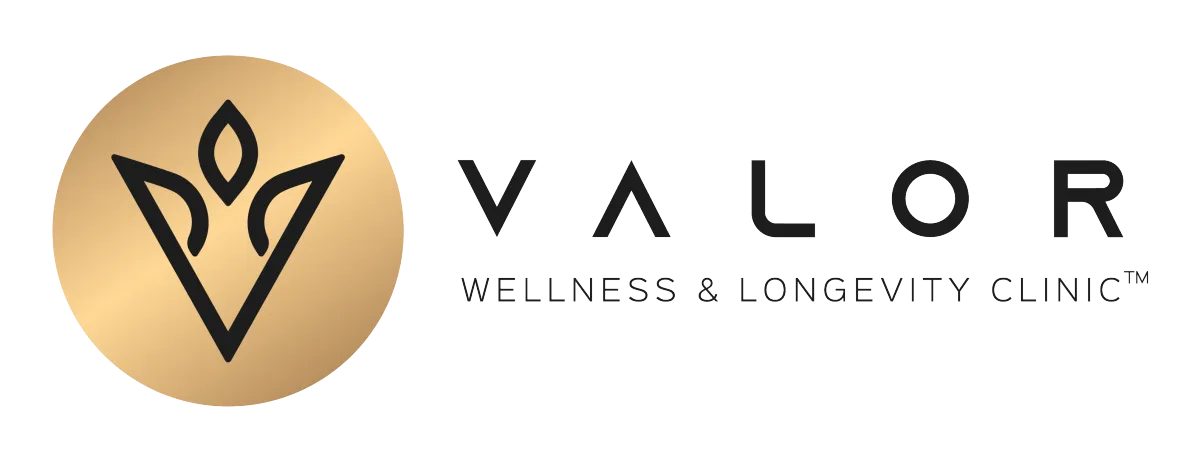
Navigating Negativity: How to Handle Criticism About Your GLP-1 Journey
Weight loss journeys are deeply personal, and the decision to use GLP-1 Medications for weight loss is one that should be respected. Unfortunately, as these medications have gained popularity and media attention, many using them for legitimate health reasons have faced unnecessary criticism and judgement.
If you've experienced negativity about your GLP-1 usage, you're not alone. This blog will explore why this criticism exists, and provide practical strategies for handling it with grace and confidence.
Understanding Negativity
Before addressing negativity, it helps to understand where it may be coming from:
Cultural Bias Around Weight Loss
Our society has long glorified "willpower" and "discipline" as the only legitimate paths to weight loss. This perspective ignores the complex biological, genetic, and hormonal factors that influence weight. Everyone's weight loss challenges are different, and we are sometimes unfarely judged off by other's expectations.
Misinformation and Media Coverage
Headlines about "Ozempic face" and celebrities using these medications have created misconceptions about who uses GLP-1s and why. Many don't understand these medications were developed for medical conditions and are prescribed by healthcare providers for legitimate health reasons.
Scarcity Concerns
Reports of medication shortages have sometimes pitted those using GLP-1s for diabetes against those using them for weight management, creating unnecessary division when both uses are medically valid.
The "Easy Way Out" Myth
Perhaps most frustrating is the misconception that GLP-1 medications are an "easy fix." Anyone who has used these medications knows they're a tool that works alongside dietary changes, lifestyle adjustments, and often significant side effect management.
Strategies for Handling Negativity
Now that we understand where criticism might come from, here are effective ways to handle it:
1. Know Your "Why" and Own Your Journey
Clarify for yourself why you chose this path and feel confident in that decision.
When you're solid in your understanding of why GLP-1 medication is right for you, others' opinions become less impactful. Remind yourself that your health decisions were made between you and your healthcare provider—not casual observers or even close friends and family.
For example, if someone is bothering you about your GLP-1 treatment, say "This was a carefully considered medical decision I made with my doctor. I'm comfortable with my choice and seeing positive health improvements."
2. Decide What Information to Share and With Whom
You don't owe anyone an explanation about your medical choices.
While transparency can help normalize GLP-1 use, you have every right to privacy about your health decisions. Consider which people in your life deserve detailed information about your weight loss methods, and which ones don't need to know specifics.
For example, if someone questions the choices of your treatment, say "I appreciate your interest in my health, but I prefer to keep the details of my treatment plan private. I can tell you I'm working closely with my doctor."
3. Educate with Facts (When Appropriate)
For those genuinely interested in understanding, brief education can help dispel myths.
If someone seems receptive to learning rather than judging, sharing basic facts about how GLP-1 medications work can be helpful. Explain that these medications help regulate appetite hormones that may be out of balance and that they're just one part of a comprehensive approach to health.
For example, if someone says they heard this or that about the science of GLP-1, explain to them "Actually, these medications work by targeting hormonal signals that control hunger and blood sugar regulation. They're not stimulants or 'diet pills' like older weight loss medications. They're helping me make sustainable lifestyle changes."
4. Set Clear Boundaries with Persistent Critics
Establish and maintain firm boundaries with those who continue offering unwanted opinions.
Some people may not respect your initial deflection. In these cases, setting clear boundaries becomes necessary to protect your well-being.
For example, you could say "I understand you have concerns, but I've made my decision with medical guidance. I'd appreciate if we could change the subject, as discussions about my medication choices are not open for debate."
5. Reframe the Conversation
Shift focus from the medication to the positive health outcomes you're experiencing.
When discussions about your weight loss arise, emphasize the health benefits rather than the method. Most people will respect improvements in metrics like weight, cholesterol, joint pain, or energy levels.
For example, you could say "The best part about my health journey is that my blood pressure has normalized and I can play with my kids without getting winded. Those changes have been life-changing for me."
6. Find Your Community
Connect with others who understand your experience.
Online and in-person communities of people using GLP-1 medications can provide validation, support, and strategies from those who truly understand your journey. These spaces allow you to share frustrations, celebrate victories, and exchange practical tips without judgment.
Try researching forums like Facebook groups, Reddit communities (r/Ozempic is a popular one), and platforms like TikTok have thriving GLP-1 communities as wel
Addressing Specific Critical Comments
Here are responses to some common critical statements you might encounter:
"Isn't that just the easy way out?"
"There's nothing 'easy' about changing your relationship with food, managing medication side effects, and making sustainable lifestyle changes. GLP-1s are a tool that helps regulate hormones that haven't been functioning properly. Would you tell someone with high blood pressure they were taking the 'easy way out' by using medication?"
"I lost weight through diet and exercise. Why can't you?"
"Everyone's body chemistry is different. What works for one person may not work for another due to differences in hormones, metabolism, and genetics. I'm glad you found an approach that worked for you, and I've found what works for me."
"Aren't you worried about the long-term effects?"
"I've discussed the risks and benefits extensively with my healthcare provider, who has access to clinical data and my personal medical history. We've determined this is an appropriate treatment for my situation and we monitor my health regularly."
"You'll just gain it all back when you stop."
"The medication is helping me establish sustainable habits and a healthier relationship with food. Additionally, weight management is a lifelong commitment for most people, regardless of the method used for initial weight loss."
The Broader Perspective
As GLP-1 medications become more mainstream, public understanding will likely improve. You're part of a medical advancement that's changing how we understand and treat obesity as a chronic condition, not a moral failing or lack of willpower.
By handling criticism with grace and standing firm in your choices, you're not just defending your personal journey, you're helping to reduce stigma for everyone using these medications.
Final Thoughts
Your health journey belongs to you. While navigating others' opinions can be challenging, remember that you made this decision for your well-being, in consultation with healthcare professionals who understand your specific needs.
Progress isn't just measured in pounds lost, but also in developing the confidence to advocate for yourself and your health decisions. As you continue your GLP-1 journey, that self-advocacy becomes as valuable as any number on the scale.
Ready to feel your best? Start your weight loss journey with Valor Wellness today. Get weight loss medication delivered directly to your door with our Online Pharmacy, or Schedule An Appointment at one of our wellness clinics today.

